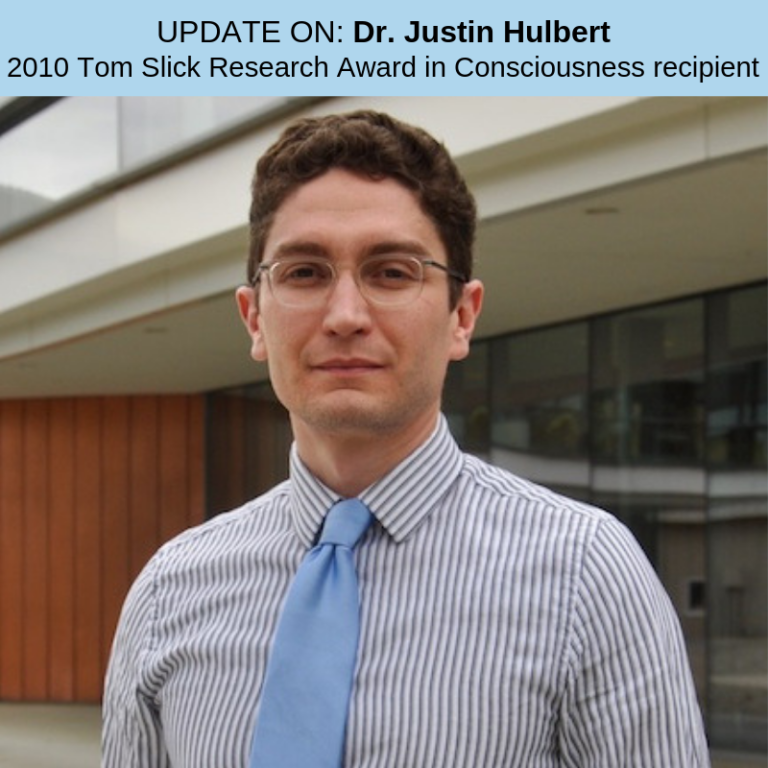MSF Tom Slick Research Award supported Dr. Justin Hulbert’s work recently published in Nature Communications

Dr. Justin Hulbert, now an Assistant Professor and the Director of the Memory Control Laboratory at Bard College, has a long solid foundation in consciousness work. He is a recipient of the Walt Disney Company Foundation Scholarship, a National Science Foundation Graduate Research Fellowship and most outstandingly, an impressive affliation with the Mind Science Foundation!
While in graduate school at the University of Cambridge in the MRC Cognition & Brain Sciences Unit, he studied in the lab of Professor Michael C. Anderson, and together, they submitted a proposal and were granted a Tom Slick Research Award in Consciousness in 2010. Dr. Anderson has built throughout his career an impressive body of work showing that deliberately suppressing memory retrieval can cause lasting damage to that memory, thereby making it harder to retrieve it in the future. Here in this project, Drs. Anderson and Hulbert aimed to extend that idea. Forgetting a memory can lead to “collateral damage” to memories of unrelated events that happened close in time to the suppression attempt. This may account for otherwise unexplained memory lapses following trauma.
Hippocampus
There is a link between suppressing memories and the hippocampus. In attempts to suppress memory, the activity in the hippocampus is reduced. The hippocampus is thought to be responsible for consolidating information from short term memory to long term. People with damage to their hippocampus may experience anterograde amnesia – the inability to form and retain new memories. Drs. Hulbert and Anderson are trying to show that when a person is actively trying to suppress a particular memory (like ones associated with PTSD), there is a time window after the suppression when the person has a short spell of amnesia (on the order of seconds) and is unable to form a new memory. They used fMRI to image the brain and show the reduced activity in the hippocampus.
For example, one can imagine a soldier, recently returned from Afghanistan, spots a motorist waving his hands alongside the highway. To most drivers, this scene would immediately indicate the motorist is stranded seeking car assistance. These drivers may remember a time when they needed aid and pull over to assist the man. However to this particular soldier, the same event triggers memories that would indicate this motorist could be a dangerous situation and in order to focus on the task of driving, the soldier suppresses those memories. Later this soldier may not remember the stranded motorist at all.
This MSF award allowed Hulbert to finish his fMRI scans, present his research findings at international conferences and finish his graduate education to obtain his PhD. From there, he began a prestigious post-doctoral fellowship at Princeton University and is now at Bard College as a Principal Investigator. And now the story is being told. An article in Nature Communicationshas been recently released detailing the results.
The MSF Tom Slick Research Award in Consciousness helped set the stage for this prestigious work to be presented today. You can learn more on our latest podcast . A very similar idea was covered in an interesting article by fellow MSF colleague, Dr. Susana Martinez-Conde, here in Scientific American.
